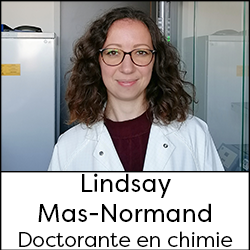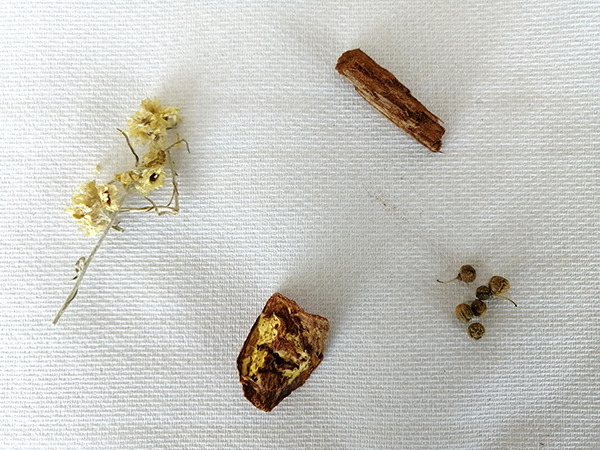[Portrait] Lindsay Mas-Normand, PhD student in analytical chemistry (IMBE)
What is your research about?
My thesis involves studying the natural dyes present in heritage objects. We have recently developed a method for discriminating between different yellow dye plants on the basis of their composition and identifying chemomarkers for each species. Our next objective is to analyse ancient objects, to look for chemomarkers previously identified and thus to find the plants used in the dyeing recipes.

What are your current scientific activities?
I had the opportunity to present our work in the form of posters at the 24ᵉ GMPCA conference and 15ᵉ RFMF scientific daysbut also during an oral communication at the 2ᵉ edition of the Tersys Implanteus Summer School. These two posters have been awarded prizes and we are now writing an article to highlight these initial results.
Why did you choose to work in academic research?
I feel the need to learn every day. University research allows us to go beyond our own limits. By opening us up to the unknown, it pushes us to go ever further. It's an environment where sharing and exchange are encouraged, a field in which everyone has the opportunity to make their own contribution and thus improve our knowledge of the world around us.
What advice would you give to students who want to do research?
I would encourage them to develop their curiosity and critical thinking skills. Researchers are constantly asking themselves questions. They set up experiments to answer them, but must always stand back when interpreting their results. You must not hesitate to leave your comfort zone, nor be afraid of failure. It's by trying new things that science progresses.
What object or image from your business best illustrates you?
Flowers, wood, fruit peels and berries can be the source of a multitude of coloured molecules that are at the heart of my thesis.

The Mediterranean Institute of Biodiversity and Marine and Continental Ecology (IMBE)
The Mediterranean Institute of Biodiversity and Marine and Continental Ecology (IMBE) is developing an integrative approach to the study of biodiversity and socio-ecological systems.
The IMBE provides fundamental and applied knowledge on the functions and historical and evolutionary dynamics of biodiversity in all types of Mediterranean ecosystems, from the construction of paleo-ecosystems to their future in the context of global change. These contributions also include links with civil society on the one hand and human health issues on the other.
Through its involvement in research, training and scientific development, the IMBE plays an active role in the environmental transition and sustainable development, helping to define local, national and international environmental policies.
The EUR Implanteus
Lindsay Mas-Normand's thesis is funded by the Implanteus University Research School (EUR).
Implanteus offers an interdisciplinary programme on Mediterranean plant production and processing, the environment, human health and sustainability. It has been designed in partnership with INRAE Provence-Alpes-Côte d'Azur and Avignon University to meet the challenge of adapting Mediterranean fruit and vegetable production systems to the constraints of global change, while promoting high nutritional quality. The course offers training in English combining plant and environmental sciences, food chemistry, process science, microbiology, human nutrition and consumer science.
The portraits
Mis à jour le 11 December 2023